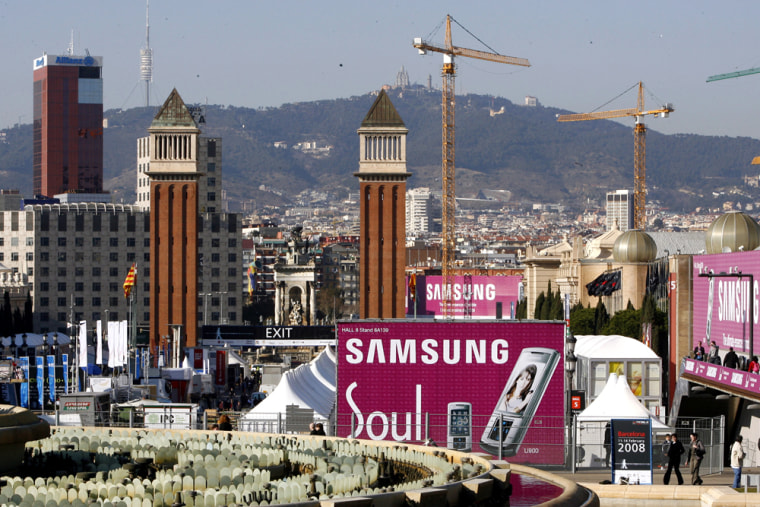Wireless industry players place their bets on the future during the four-day Mobile World Congress opening Monday in Barcelona, laying stakes on the next big thing with new product launches, services and alliances.
Is wireless broadband beamed into your home in the future? Will advertisers be invading your mobile phone with location-based advertising? Exactly how personalized will your mobile phone become and is the time ripe for the Internet's migration into your handset?
While more than 50,000 industry officials from major cell phone makers, telecoms companies and high-technology firms stake out their next move at the world's largest communications conference, the winners ultimately will be decided by consumers.
"One thing is to come out with an announcement. The next is to deliver. At the end of the day, the user decides who is the winner and who is the loser. The winner is the one who can give the best experience," said John Strand of Copenhagen, Denmark-based Strand Consulting.
Strand says the hot topic at this year's conference will be mobile broadband, which already is taking off in countries like Sweden, Finland and Austria. The technology has the virtues of delivering high-speed Internet to areas where there aren't existing cable networks or where the network quality is poor — but Strand said the success will be in the pricing.
Major cell phone makers including Finland's Nokia Corp., the U.S. company Motorola Inc. and Samsung and LG of South Korea will be on hand, along with telephone operators looking for new services — from music players to instant messaging — that will help them recoup the millions invested in third-generation cell phone technology.
As the Internet migrates to the cell phone, some of the biggest players will be companies like Yahoo! Inc., Google Inc. and Microsoft Corp. They are looking to expand into the 3 billion cell phones worldwide — roughly three times the number of computers.
Industry watchers have their eyes on Barcelona to see if Google is going to make a move with its Android operating system, which is designed to work on "smart" phones, handheld gadgets that integrate functions of personal digital assistants with cell phones.
The first of the devices with Google software are expected to hit the market during the second half this year, but no alliances have yet been announced.
Microsoft, which entered the mobile phone arena only a handful of years ago, wants to be one of the major players as the Web spills onto the mobile.
(MSNBC is a joint Microsoft NBC Universal venture.)
"Software is driving the change because that is what is powering new services, which is what is allowing instant messaging, which is what is making songs turn handsets into music phones," said John Starkweather, a Microsoft product manager.
The trend has forged some alliances that would have seemed unlikely a few years ago, including Nokia's inclusion of some Microsoft technology such as Windows Media Player on its handsets.
One of the big challenges facing the industry is the poor adoption and usage of new services despite millions of dollars spent in marketing. And advertising — one of the main themes last year — will be on the agenda again as companies grapple with privacy issues as they seek to send localized ads to your mobile that target you even as you walk past a store.
A number of initiatives using mobile technology to improve lives in poor, rural areas will be rolled out. And Robert Redford will be on hand Wednesday for a special one-day mobile entertainment conference exploring the potential of the mobile phone as the so-called 4th screen, a medium for independent filmmakers to reach new audiences.
